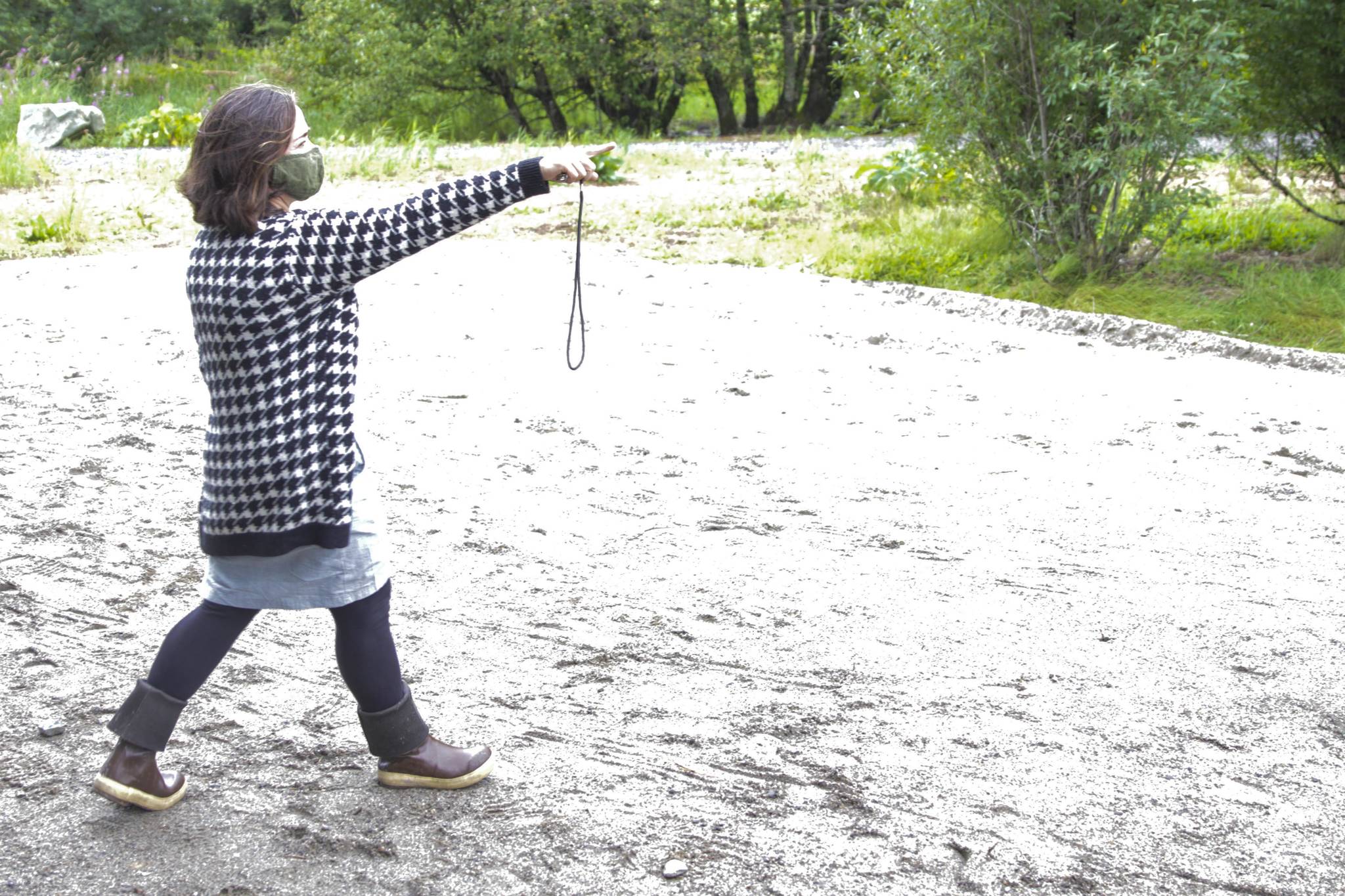An earlier version of this story incorrectly identified the Glory Hall as running the shelter in the Juneau Arts and Culture Center, as opposed to St. Vincent de Paul Juneau.
The new Glory Hall building is a far cry from its predecessor. The Mendenhall Valley llocation has ample space on all sides, a marked difference from its Franklin Street location
Despite concerns that Glory Hall patrons would not follow the soup kitchen and shelter to its new location, the spacious, purpose-built building quickly attracted a full-capacity crowd.
“I was really surprised by how quickly it filled up, given people’s concerns about getting out here,” said executive director Mariya Lovishchuk in an interview. “That fear did not materialize at all.”
All of the shelter’s 43 private, individual rooms are full up, Lovishchuk said, and some of the overflow bunk beds are also occupied. But said agencies that provide services to Juneau’s unshelter population are not especially worried about winter, Lovishchuk said. St. Vincent de Paul Juneau is no longer occupying a portion of the Juneau Arts and Culture Center, she said.
“We do think we’ll be totally full during the winter, but we think between here and the warming shelter we’ll have it covered. I’m very optimistic about that,” Lovishchuk said. “We’ll use the conference rooms. If we have to, we’ll use this office.”
Better outcomes
The expanded capacity of the new structure is already paying off, Lovishchuk said, with multiple simple but far-reaching quality-of-life improvements.
“I don’t have words appropriate to describe how great it’s been. People can now meet with providers and have private conversations,” Lovishchuk said. “Nothing is getting stolen. We have cameras that work, so now, if there is an issue, we can find out what happened.”
A number of guests at the shelter have already been able to connect with long-term housing solutions, Lovishchuk said.
“We are really excited about our new building because we can move people to better places. Their stay in the emergency shelter should be as short as possible,” Lovishchuk said. “We want to funnel people through here into more permanent housing as rapidly as possible.”
The transition wasn’t entirely without hiccups, Lovishchuk said, with the national logistics slowdowns affecting the opening of the new building’s kitchen, requiring the shelter to use the old location’s kitchen and transport the food, a colossally inefficient process. There were also some speed bumps of a more banal nature, including the delayed arrival of the mattresses for the beds — and some reassembling required.
“We did put together three beds upside down! But we quickly put them together right side up,” Lovishchuk said. “We actually ended up borrowing a bunch of cots from the hospital, and we borrowed a bunch of mattresses from JYS (Juneau Youth Services. Ten days later, our mattresses finally showed up.”
Being neighborly
While she hasn’t heard any complaints from surrounding businesses besides a single incident involving a verbal argument with a resident of nearby housing that did not result in a police report, Lovishchuk said they’re taking steps to be good neighbors for the surrounding area, including instituting regular trash pick-ups in the local neighborhoods and seeking a new board member from that part of town.
“It’s really great,” Lovishchuk said. “I’ve heard no negative feedback at all. Only positive feedback so far.”
Some of their neighbors have also lent a hand toward making the shelter feel welcome, Lovishchuk said.
“We have some really amazing gardeners at. St. Vincent’s Smith Hall, and they brought us a bunch of plants for inside and outside,” Lovishchuk said. “That was really very touching.
The Glory Hall has a number for residents or business owners in the area to call, (907)586-4159, if there are concerns, Lovishchuk said.
Looking forward
The shelter is currently looking at getting its garden started, Lovishchuk said, including getting garlic planted in October. They’ll also be building a fence and shelter for guests to congregate outdoors, and getting flowerbeds sorted for more planting.
They’re also still considering the disposal of the old building, which the shelter still owns.
“We have to figure out the Franklin Street building,” Lovishchuk said. “We’re going to try and sell it or develop it into apartments. The cool thing is that there’s already a lot of plumbing, and a lot of electrical and mechanical [capacity] there. We’ve had 40 people living there on a regular basis. The building has capacity. We’ve rebuilt the building twice in ten years. The building’s in pretty good shape.”
The city also has provision in the capital improvement project budget for next year to relocate a bus stop by the Glory Hall, minimizing foot traffic from the current stop, which is located less conveniently, Lovishchuk said.
Lovishchuk said she also wants to bring their experience developing Housing First projects to other communities in the Southeast.
“We also want to see if we can work with other communities to share our experience with how Housing First projects worked,” Lovishchuk said. “How we developed it, how it was funded, what we think really works in terms of operating them, what we think doesn’t.”
Juneau currently has the only Housing First projects in the region that she’s aware of in the region, Lovishchuk said, with Sitka attempting to develop one. Anchorage and Fairbanks are also host to one or more Housing First facilities, Lovishchuk said.
• Contact reporter Michael S. Lockett at 757-621-1197 or mlockett@juneauempire.com.

